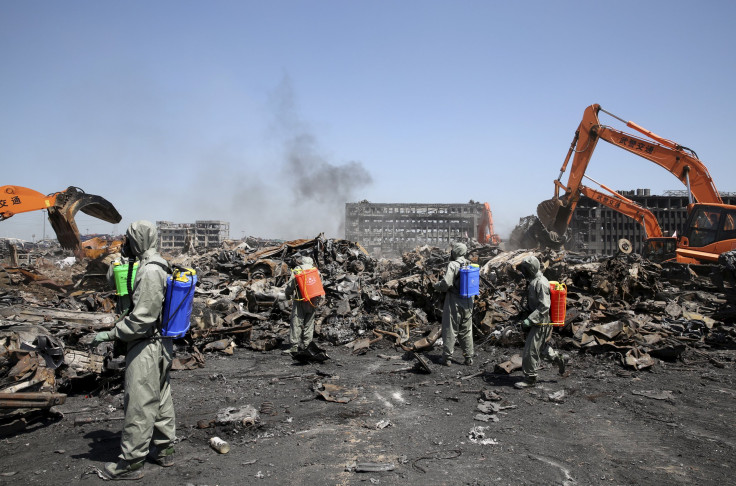Tianjin Blasts: Chinese Authorities Call Off Search For Missing, Put Final Death Toll At 173

Chinese authorities announced Saturday that they were ending the search for people who remain missing after explosions rocked the port city of Tianjin last month, and said that a court will begin issuing death certificates for the eight people who remain unaccounted for.
Tianjin's city government made the announcement on its microblog, according to the Associated Press, saying there was no hope of finding any of the people who were still missing. Authorities have now put the final death toll from the disaster at 173.
Five of the people who are still missing are firemen, over 100 of whom were killed during the explosions, making Tianjin the most lethal disaster in the history of China's fire service.
The Tianjin blasts represented a public relations nightmare for China's government, as reports emerged that senior management figures in Ruihai International Logistics, the company that owned the warehouses in which the explosions took place, had skirted safety regulations through their close relationships with local officials.
The warehouses at the epicenter of the explosions were reportedly located closer to residential areas than regulations allowed. As a result, a great many residential buildings were seriously damaged in the blasts. Following protests by angry residents, the government announced that owners of homes damaged in the blasts could sell them to property developers, or choose to have the government renovate them.
Chinese President Xi Jinping has made a crackdown on official corruption the centerpiece of his administration, as he seeks to increase the legitimacy of Communist Party rule in what is effectively a one-party state.
Previous scandals and national disasters, such as the 2008 Sichuan earthquake, in which thousands of children died when schools which were poorly built as a result of alleged official corruption collapsed, saw widespread public anger directed at the government.
In the aftermath of the Tianjin blasts, Chinese authorities worked to censor critical online commentary, as many Chinese expressed disaffection with the governing Communist Party over the incident.
© Copyright IBTimes 2024. All rights reserved.












